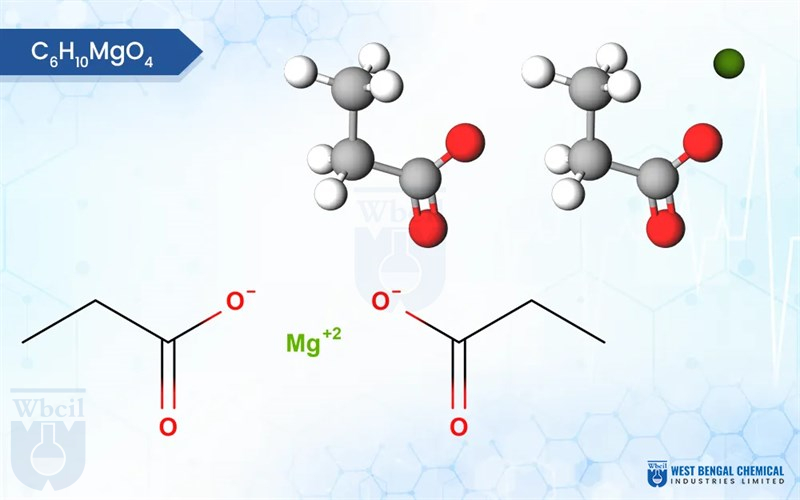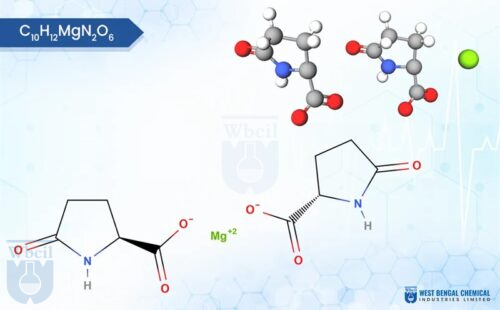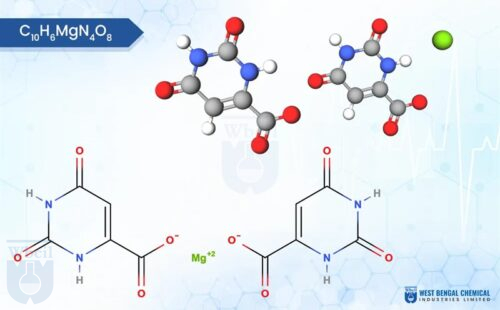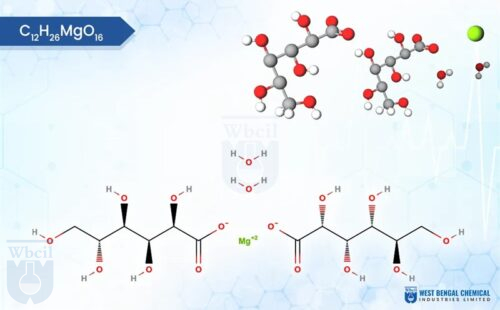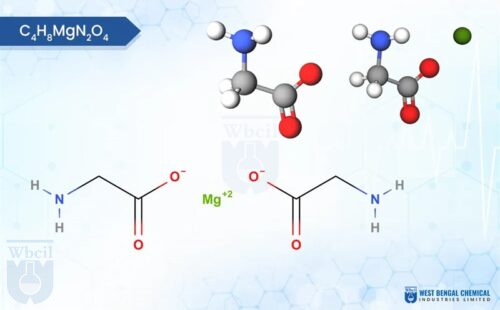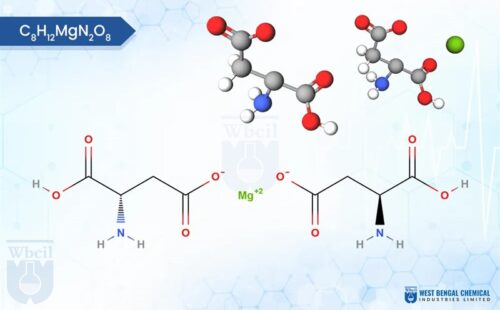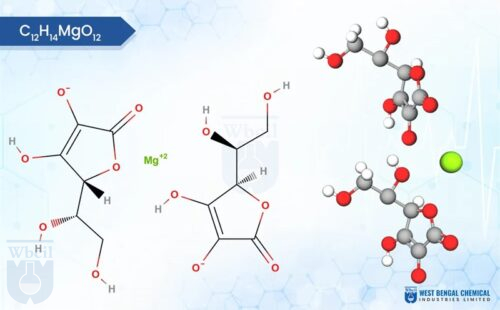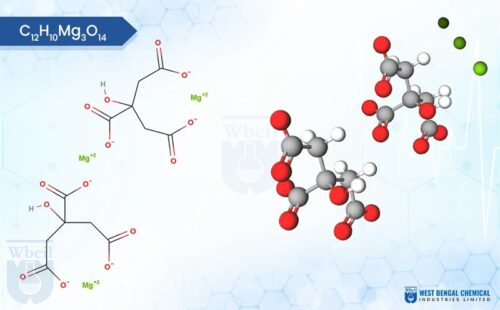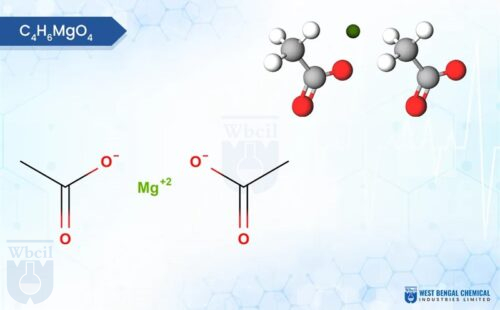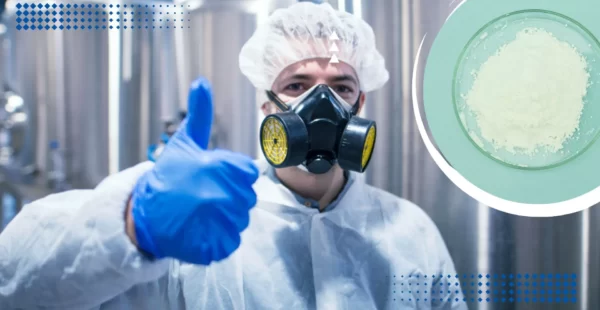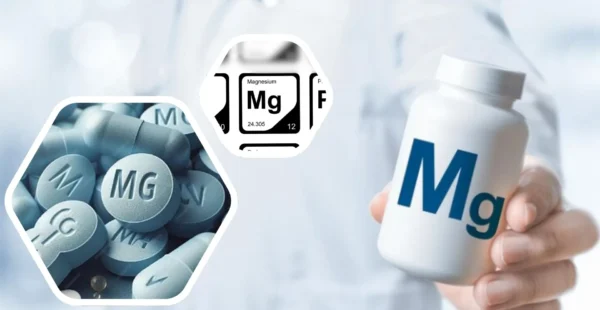-
Product Name:
Magnesium Propionate
-
Molecular Formula:
C6H10MgO4
-
Molecular Weight:
170.45 g/mol
-
CAS No.:
7439-95-4
-
HSN Code:
29152920
-
CID Code:
6453238
-
Shelf Life:
3 years - 20°C powder
-
ChemSpider ID
4955626
-
UNII No.
699E2A173P
- USP
- IUPAC Names
- Synonyms
USP of Magnesium Propionate
- Prevents mold, bacteria, and yeast growth. Ensures safe and high-quality food products.
- Neutral pH, compatible with various food types.
- Tasteless & odourless, does not alter sensory properties when added to the food.
- Granted Generally Recognized as Safe (GRAS) status by the FDA.
- Contributes to magnesium intake.
- Applications in food, animal feed, and pharmaceuticals.
- Enhances effectiveness when combined with other additives.
IUPAC Names of Magnesium Propionate
magnesium;propanoate
Synonyms of Magnesium Propionate
- magnesium propionate
- Magnesium dipropionate
- 557-27-7
- magnesium;propanoate
- UNII-699E2A173P
- 699E2A173P
- Propanoic Acid, Magnesium Salt

Description of Magnesium Propionate
Magnesium propionate, a white crystalline powder with a faint soapy odor, is valued for its scientific and chemical properties. Typically described as slightly hygroscopic, meaning it can absorb moisture from the air if left exposed, it offers a dry, granular texture. On the chemical side, this compound boasts the formula C6H10MgO4, indicating its composition of magnesium (Mg), carbon (C), hydrogen (H), and oxygen (O).
The arrangement of these elements creates an organic salt with interesting physiological applications, making it a compound of increasing scientific interest. As a leading API manufacturer, WBCIL prioritizes strict CGMP and ISO quality control measures throughout the production process. The prolonged experience from 1962 ensures consistent potency, purity, and safety in every dose of WBCIL’s Magnesium propionate.
Application of Magnesium Propionate
Food Preservative
Mold, Bacteria, and Yeast Prevention: Magnesium propionate is widely used as a preservative in food products. It effectively inhibits the growth of mold, bacteria, and yeast, ensuring food safety and extending shelf life. Its ability to control microbial growth makes it especially useful in baked goods, dairy products, and processed foods.
Maintaining Quality: By preventing spoilage and microbial contamination, it helps maintain the texture, flavor, and overall quality of food products, ensuring they remain safe for consumption over longer periods.
Animal Feed Additive
Feed Preservation: Magnesium propionate is commonly used in animal feed to prevent mold and bacteria growth, thereby ensuring the safety and nutritional integrity of the feed. This is particularly important for feed that is stored for extended periods or in humid conditions.
Health Benefits: In addition to its preservative qualities, magnesium propionate contributes magnesium to the diet of livestock, supporting proper muscle and nerve function, as well as bone health in animals.
Pharmaceutical Applications
Supplementing Magnesium Intake: Magnesium propionate is sometimes used in pharmaceutical formulations to supplement magnesium levels. Magnesium is an essential nutrient for human health, contributing to numerous physiological processes, such as regulating muscle contractions, nerve function, and maintaining a healthy immune system.
Tasteless and Odorless: Its neutral sensory properties (tasteless and odorless) make it an ideal additive in pharmaceutical products, as it does not affect the flavor or smell of medicinal formulations.
Neutral pH and Compatibility
Versatile Use in Food Processing: Magnesium propionate has a neutral pH, which means it is compatible with a wide range of food products without altering their natural pH levels. It can be safely added to acidic, neutral, or basic foods without affecting their taste or texture, making it a versatile ingredient in food processing.
FDA GRAS Status
Safety and Regulatory Approval: The U.S. Food and Drug Administration (FDA) has granted magnesium propionate the “Generally Recognized As Safe” (GRAS) status, ensuring its safety for use in food and pharmaceuticals. This allows manufacturers to incorporate it confidently into products for human and animal consumption.
Synergistic Effect with Other Additives
Enhanced Preservation: When used in combination with other food additives, magnesium propionate can enhance the overall effectiveness of preservation efforts. It works synergistically with other antimicrobial agents, further extending the shelf life and safety of products while maintaining their sensory properties.
Contributing to Nutritional Intake
Magnesium Supplementation: Beyond its role as a preservative, magnesium propionate also serves as a source of magnesium, an essential mineral that plays a critical role in many bodily functions. Its use in food and pharmaceuticals helps contribute to an individual’s daily magnesium intake, supporting overall health.







